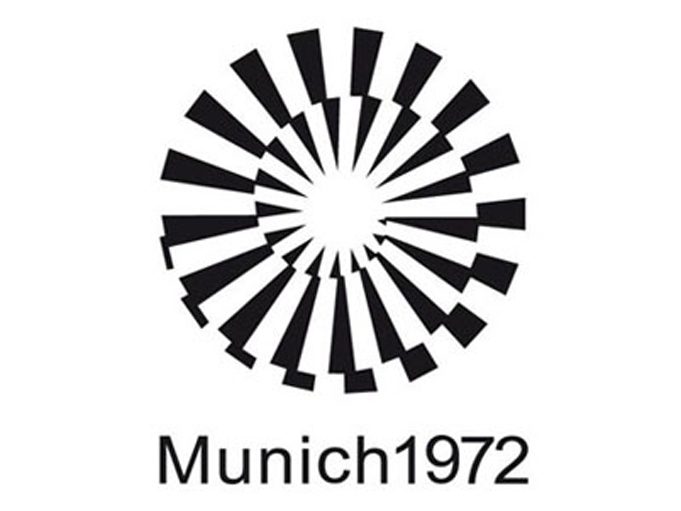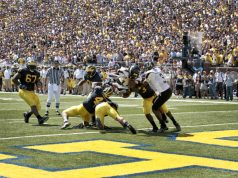Peter Rodgers never figured that by opening a gift, he’d close the book on a lingering controversy. The birthday present Rodgers received should, at the very least, prompt a second look at the 1972 Olympic men’s basketball final and the Soviet Union’s disputed 51-50 victory that has gnawed at Americans ever since.
“At that time, there was no doubt in my mind that we had just been royally shafted,” said Missouri Valley Conference Supervisor of Men’s Basketball Officials Jim Bain, who officiated at the 1972 Munich Games and watched the final from a front-row seat.
Now he’s not so certain. Why? Because Rodgers, an official in the New Zealand National Basketball League, sent Referee an Australian-produced videotape entitled: “The Story of a Game: The Official History of Basketball,” which features a segment on the gold medal showdown. The tape, made in 1993 and purporting to show “rare footage” of the championship game, is apparently little-known in the U.S.
Most accounts of the chaotic final seconds — including Referee’s first article on that game, which appeared in the 8/97 issue — reflect what Rodgers terms “the same American slant.” The tape effectively punctures the popular American belief that the U.S. team was “robbed” that night.
The 1972 final has long fascinated Rodgers. In fact, he penned an article for a New Zealand basketball referees’ newsletter asking readers to step into the shoes of the officials — Brazil’s Renato Righetto and Bulgaria’s Artenik Arabadjan — and rule on specific plays that occurred in those chaotic final seconds when both teams celebrated victory, when horns sounded while the ball was in play, when time was placed back onto the clock not once, but twice. Referee’s original account of the game compelled Rodgers to send a letter to the editor in which he referred to “The Story of a Game.” At the magazine’s request, Rodgers dropped the tape in the mail. What he really dropped was a bombshell.
The tape had a staggering effect on Bain, who discussed the game during a “You Are There” panel session at the 1998 NASO national convention in Indianapolis. Bain had agreed beforehand to comment and was rendered speechless for a full minute after viewing the tape. He struggled to compose himself and then, in a choked voice, said, “I’m having some trouble controlling my emotions right now.”
Who could blame him? Americans have come to accept the party line — “We were robbed” — as gospel. They applaud as men of principle the 12 players who have refused to accept their silver medals, revile as villains the officials responsible for such a travesty of justice and even disparage the Soviets as unworthy champions. Then the tape rolls and it appears that what has long been regarded as fact is unmasked as fiction.
To Americans of a certain age, memories of the game’s waning moments will remain forever vivid. After American player Doug Collins swished a pair of free throws with three seconds left to give the U.S. a 50-49 lead, the Soviets were given three opportunities to score the winning bucket. They finally cashed in when Soviet player Aleksandr Belov grabbed teammate Ivan Yedeshko’s length-of-the-court pass between American defenders Mike Joyce and Jim Forbes and dropped in a layup to give the USSR its first basketball gold medal and the U.S. its first Olympic basketball defeat in 64 games.
The Americans were at first stunned, then outraged. Accusations of foul play flew, but it was bad luck and bad execution at the finish that cost the U.S. team, not some sinister plot. R. William Jones, then the head of the International Amateur Basketball Federation (FIBA), had good reason, according to the tape, to twice put time back on the clock. Soviet coach Vladimir Kondrashkin, now deceased, had tried to call a timeout before Collins’ second free throw, but was frustrated by a malfunction of the electronic pushbutton device coaches used to activate a light at the scorer’s table. Kondrashkin gestured to those at the table, who in turn tried to alert the game officials by sounding a horn — just as Collins was releasing his second foul shot. The Soviets then inbounded the ball and advanced it to midcourt before Arabadjan noticed, halted play and granted Kondrashkin his timeout. One second remained.
That’s when Jones left his seat in the bleachers, approached the table and ordered the clock reset to three seconds. In the previous Referee story, Olympic historian Bob Paul said that Jones had no authority to make such a ruling, an opinion shared by many Americans. Borislav Stankovic, now executive director of FIBA, begs to differ. “The intervention of Mr. Jones at that time was absolutely legal because he was the president of the technical commission, and the table made mistakes,” Stankovic says on the tape. “His intervention is to correct the mistakes of the table. For the spectators, and the American team especially, it was something unbelievable.”
That’s an understatement. U.S. coach Hank Iba charged the table, demanding an explanation. “We had absolutely no idea what was going on,” said U.S. forward Mike Bantom.
A second inbounds attempt followed. The officials at the table were seen waving their arms too late in an effort to alert the game officials that the clock was improperly set to 50 seconds. The horn sounded an instant before Soviet player Modestas Paulauskas caught Yedeshko’s inbounds pass. When he misfired on a desperation 80-footer, bedlam reigned.
American fans poured from the stands and mobbed their team, seemingly oblivious to the repeated sounding of the horn, an indication that something was amiss. Because Righetto handed the ball to Yedeshko prematurely, the final three seconds had to be replayed. “It just shows you that, as far as officiating goes, you should always hustle but never hurry,” said Bain. “I always tell our people that when you hurry you are going to make mistakes. That clearly shows that by hurrying, the officials brought some of the problems on themselves.”
The final sequence, according to the “we-were-robbed” faction, contains a wealth of damning evidence. Bill Wall, executive director of USA Basketball from 1974-92, claims on the tape that several rules infractions occurred on the last play, but the evidence doesn’t seem to be there. For example, Wall contends that Righetto did not permit 6-foot-11 Tom McMillen to contest the inbounds pass, motioning him away from Yedeshko. In actuality, Righetto was motioning with his arm to indicate to McMillen the plane of the baseline; McMillen dropped back of his own accord, affording Yedeshko an unobstructed view downcourt.
Wall further asserts that Yedeshko stepped over the baseline, which he did — after the ball was hurtling toward Belov, a legal play.
Wall contends that Belov, on the other end of the court, committed a three-second lane violation before sinking the winning basket. But the tape refutes the claim: Belov caught the pass while coming from well outside the lane and quickly released his shot.
Finally, Wall maintains that Belov charged one or both defenders. Again, the evidence suggests otherwise. Joyce’s momentum carried him behind Belov and out of bounds; there was no perceptible contact between them. Forbes fell to the floor after losing his balance in an attempt to outleap Belov for the ball.
“The one play that most people have talked about that they felt was part of the game officials’ favoritism (toward the USSR team) was when Aleksandr Belov took the pass and, as Bill Wall mentioned in his comments, charged two of our players,” Bain said at the convention. “But whenever offense and defense go up for a loose ball, both are entitled to try to gain possession of it. From an officiating standpoint, I thought that was the most legitimate part of the whole sequence.”
It’s true, a series of blunders marred those frenzied final seconds, but they were mistakes made by humans working in a pressure-cooker atmosphere, not mistakes made with any ulterior motive. “The Story of a Game” dispels the myths of Munich. There was no plot against the U.S. The Soviet victory was not a gift from crooked officials. The real gift was a videotape that helped set the record straight.
(Bob Fulton is a freelance writer from Indiana, Pa., and author of the book The Summer Olympics: A Treasury of Legend and Lore. He wrote Referee’s first article on the 1972 Olympics controversy.)
What's Your Call? Leave a Comment:
Note: This article is archival in nature. Rules, interpretations, mechanics, philosophies and other information may or may not be correct for the current year.
This article is the copyright of ©Referee Enterprises, Inc., and may not be republished in whole or in part online, in print or in any capacity without expressed written permission from Referee. The article is made available for educational use by individuals.



















